Christof Lehmann (nsnbc) : 82 more Chibok schoolgirls who were among more than 200 kidnapped by Boko Haram in 2014 have been released, reported the office of Nigeria’s Presidency on Saturday. The kidnapping of the girls by Boko Haram made global headlines in 2014. However, slavery and human trafficking are widespread in Nigeria and the tragic and highly advertised case of the 200 kidnapped Chibok girls from Borno state merely shows the tip of the iceberg of a colossal human tragedy that rarely makes “headlines”.
The office of the Nigerian Presidency announced on Saturday that President Muhammadu Buhari is pleased to announce that lengthy negotiations led to the release of 82 more of the more than 200 Chibok schoolgirls who were kidnapped by Boko Haram in 2014. The office of the Presidency also announced that the girls would arrive in the capital Abuja on Sunday, May 7, and that they will be received by the president.
Very few details about the negotiations and the agreement that led to the release of the girls has been made public. A Nigerian military source stated on Saturday that the girls were in Banki near the border to neighboring Cameroon for medical checks, and that they would be airlifted to Maiduguri, the capital of Borno state. The report that the girls would be transported to Abuja to meet President Buhari came after the statement by a military spokesman.
About 220 girls were abducted from their school in a night-time attack by Boko Haram in 2014. Boko Haram has since 2014 pledged allegiance to the self-declared Islamic State. Some few girls have been freed or released since 2014. About 20 girls were released in October 2016 in a deal brokered by the International Committee of the Red Cross. However, about 195 were still believed to be heldin captivity prior to te release of the 82 girls.
In April 2017 President Buhari said his government was in talks to secure the release of the remaining captives. It is uncertain whether Boko Haram still holds all of the remaining girls as some intelligence suggests that some of them may have been sold off. The case of the Chibok schoolgirls attracted international attention and made global “headlines”. Other cases attracted little to no international attention even though Boko Haram militants have killed an estimated 20,000 people, kidnapped hundreds of others, and displaced more than 2 million during their insurgency aimed at creating an Islamic caliphate in northeast Nigeria.
Tragically, kidnapping, slavery, sexual exploitation and trafficking are a colossal problem in Nigeria and other African countries so the kidnapping of the 220 girls would not have been “extraordinary” had it not been for the “extraordinary international attention” this case attracted.
Cultural Factors Play a Minuscule Role. A relatively small part of African slavery and human trafficking problems are related to cultural factors. Mauritania is one of the countries where slavery is a remainder of the age-old Arab slave trade and the colonization of the Maghreb by Arabs. Slavery was banned in Mauritania in 1980.
The remaining problems in Mauritania, as tragic as they are, are minuscule in comparison with the conflict related slavery and trafficking. Moreover, most slaves in Mauritania are living within family units, which is in stark contrast to the destiny of the vast majority of those who are enslaved or trafficked in connection with conflicts.
Slave Trade in Africa and Middle East worth 1.6 Billion Annually. In an article about slavery in Africa, Emma Christopher stressed that the NGO Free the Slaves estimates that 1.6 billion dollar in profit derives from African and Middle Eastern slavery per year. Christopher adds, that this amount is greater than the combined GDP of eight African countries in 2013.
Christopher stressed that Around 40% of the world’s chocolate comes from cocoa produced in the Ivory Coast and that children from across West Africa are trafficked to work there: there is no guarantee that those children have not grown the chocolate you enjoy.
What Christopher doesn’t address in her article is that core NATO member France engineered the 2010 coup d’état against Ivorian President Laurent Gbagbo who was about to end the French usurpation of the country and with it the usurpation of the other UMEOA member states.
Neither the conflict in Ivory Coast and the continuation of the slavery in and around the country can be understood without understanding the system of usurpation France installed in its former colonies and UMEOA member states.
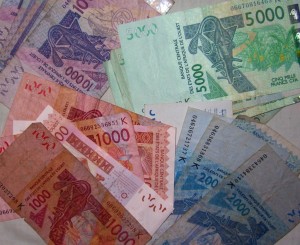 The system was described in great detail, in the article “French Africa Policy Damages African and European Economies”. The problem can be reduced to the following:
The system was described in great detail, in the article “French Africa Policy Damages African and European Economies”. The problem can be reduced to the following:
- France has installed commissars in the UMEOA region’s three central banks. The commissars have veto right and can, in fact, block any financial, monetary or economic decisions.
- France is printing the regions money, the Franc CFA in Chemaliers, France.
- UMEOA member states “must” deposit 65 % of their foreign currency reserves in the French National Bank against 0 (ZERO) % interest.
- France earns about 3 % interest on the deposits and “lends” the profit back to individual UMEOA member states against 5 – 6 % or more as “development aid”.
- UMEOA member states “must” deposit “all” of their gold reserves in France. No audit has taken place for decades.
- Any head of state who wants to get his country out of the French racket is faced with the prospect of assassination, imprisonment or a coup d’état. Laurent Gbagbo has since 2010 been held in a prison of the International Criminal Court.
Christopher also, correctly points out that seven types of slavery are prevalent in eastern Congo. Men and boys are enslaved in the mines of the region, whose products we all have in our mobile phones and other electronics.
A covert investigation in 2013 by Free the Slaves found that more than 90% of mine-workers were enslaved, the majority through debt bondage or having been kidnapped by armed groups. Nearby, they found women and girls who had been trafficked to work as prostitutes to serve the miners. (emphasis added).
The Sudanese parliament reported in 2008 that at least 35.000 people remained enslaved, the majority of them being Christians from the South held by Islamic families in the North.
The problem has received little international attention, although it has been noticed when US and Qatari intelligence services began targeting the country for civil war and its separation into Sudan and South Sudan. That development came when depletion of oil resources made the exploration of Sudanese resources attractive.
October 2013 the Tunisian Interior Minister Lofti Ben Jeddou complained that Tunisian girls were being trafficked trough Turkey. Young Tunisian girls are being lured into traps or simply kidnapped and trafficked to Syria via Turkey.
Ben Joddou announced to Tunisia’s National Assembly, that Tunisian girls are forced to satisfy the sexual needs of terrorists in Syria under the euphemism sexual jihad.
Ben Jeddou stressed, that Turkey has become a bridgehead for sex jihad and declared that the trafficked Tunisian girls are forced into having sex with 20 – 30, in some cases 100 of the “holy warrirors”. Ben Jeddou stressed, that most of them return pregnant.
Besides the psychological trauma that the young Tunisian girls suffer, the large number of children which will be born due to the forced sexual service will create a sociological time bomb in Tunisia. Another problem, which remains largely unaddressed is that many of the girls who return, have been infected with sexually transmittable diseases, including HIV. Yet others again never return because life has become a cheap commodity since the country was targeted for holy war.
It is worth noting that these holy warriors, for the greatest part, are US-UK-Turkish-Saudi Arabia and Qatar-funded mercenaries who are fighting a war on behalf of core NATO member states, CGG member states and Israel. For those who have not yet noticed the fact, a statement by the former French Foreign Minister, Roland Dumas is a good starting point to understand the situation in Syria.
During an appearance on the French TV channel LPC, Dumas made a short remark, saying that top British officials were preparing the subversion of Syria with the help of “rebels” two years before the first protests in 2011, and that he was asked, whether he wanted to participate. During the TV appearance on LPC, in June, Dumas said:
“I am going to tell you something. I was in England two years before the violence in Syria on other business. I met with top British officials, who confessed to me, that they were preparing something in Syria. … This was in Britain not in America. Britain was organizing an invasion of rebels into Syria. They even asked me, although I was no longer Minister of Foreign Affairs, if I would like to participate. Naturally, I refused, I said I am French, that does not interest me … This does not make sense, it is time to fix all this again. … there are some sides who have the desire to destroy Arab states, like what happened to Iraq and Libya before, particularly given Syria´s special relations with Russia. … that if an agreement is not reached, then Israel will attack and destroy the governments that stand against Israel”.
Kidnapping of girls and trafficking of girls to Syria has also been reported from Mali, invaded by France and NATO members in 2013 as well as from Egypt and Libya invaded by NATO and NATO-led Al-Qaeda “rebels” in 2011. Since 2014 the kidnapping of girls has begun spreading into Europe, with the “disappearance” of two Austrian – Bosnian girls being the best known incident.
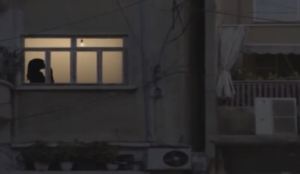 Employment in Slave-like Conditions. One of the greatest Arab importers of migrant workers who are working under slavery-like conditions, is Qatar.
Employment in Slave-like Conditions. One of the greatest Arab importers of migrant workers who are working under slavery-like conditions, is Qatar.
About 88 % of all workers in Qatar are migrant workers. Many of them are kept in appalling conditions. Violence and abuse, including sexual abuse is rampant. Many female migrant workers are literally being held as sex slaves. Similar conditions can be found in Saudi Arabia, the UAE and Bahrain.
An Entirely Different Problem – Trafficking for the Western Sex Industry. Trafficked African sex workers can be found in as good as every red-light district in every European capital as well as in most larger provincial cities. African girls are also being trafficked to Asia.
 Many of the girls are lured into traps with promises about a cleaning job, au-pair jobs and other. Once they arrive, the standard procedure is that their passports are taken away and that they are “broken in”.
Many of the girls are lured into traps with promises about a cleaning job, au-pair jobs and other. Once they arrive, the standard procedure is that their passports are taken away and that they are “broken in”.
In an interview with several trafficked African prostitutes in a provincial town in Denmark, one of the girls told the author that she was hospitalized with severe blood loss after having been forced to service numerous “clients” one day.
Asked how she managed at the hospital she reported that a health insurance card was “lent” to her by her pimp. When she was asked why she didn’t use the occasion to escape, she said that she was scared. Her pimp knows who her family is, and they will kill someone if I run away, she said.
The standard price for these trafficked African girls in Denmark is between 170 and 200 dollars per hour. A trafficked girl can expect to earn about 20 to 30 of the 200 dollars. From that income, they are often forced to pay 50 – 100 dollars per day for accommodation and other “services”.
Trafficked African girls in similar situations can be found in their thousands across Europe. The vast majority of them are from the former French colonies, now UMEOA member states or one of the countries of “special interest” for other core NATO member states.
A Question of Sovereignty. Ultimately, what one is dealing with is a question of sovereignty. That is, national sovereignty as well as individual sovereignty.
The girls kidnapped by Boko Haram have been deprived of their sovereignty over themselves and their own bodies. Boko Haram is used by core NATO member states to deprive Nigeria of its sovereignty by subverting the country, to place AFRICOM troops, to “secure” the country’s resources for the USA and its western allies.
The slave or migrant workers in Ivory Coast and its cocoa plantations have been deprived of sovereignty over themselves and their bodies. They have been reduced to an instrument for a modo-colonialist system of usurpation. Ivory Coast and the other 14 UMEOA member states don’t have any sovereignty. France can and does dictate their fiscal, monetary and economic policies and changes regimes which threaten to break free from the racket.
The trafficked girl in the Danish provincial city does not have sovereignty over herself or her body. The thousands of girls in similar situations in Europe have been deprived of their sovereignty.
D
ouble Moral in Western Prostitution Laws – The Ultimate Betrayal. Nobody should live in slavery or work under slavery-like conditions. Nobody, neither woman or man should be kidnapped, trafficked or otherwise forced into prostitution.
That said, some women and men alike are making the conscious decision to escape sweatshops in the Maghreb, cocoa plantations in Ivory Coast, gold mines in Congo, uranium mines in Mali, or minimum wage, zero hour contract jobs at a McDonald in London.. etc..
Some people make the sovereign decision to say unequivocally “no” to working as industrial slaves in a rigged game. Some of these people recognize that all that the system in which they are entrapped leaves them with is sovereignty over themselves, their own body and their entrepreneurial spirit.
Some of these people make a sovereign decision to sell sexual services under conditions which they themselves determine and agree to. People who empower themselves by providing sexual services to paying clients. Some of them travel from Africa or Asia to Europe to work and provide for their family and to save money to build a life when they return.
If there was a political will to crack down on trafficking there would be very few trafficked women in western countries. Instead, we see increasingly restrictive prostitution laws which target those who are working as free entrepreneurs as well as their clients.
Restrictive prostitution laws which prevent these people from empowering themselves with the only resource this system, in many cases, has left them with. These laws drive them into the hands of exactly those criminals who will abuse them – this is, the ultimate betrayal of their sovereignty – this is, the ultimate enslavement that denies even, that one uses one’s own body as a sovereign.
Restrictive laws, lack of opportunity and freedom, are also among those factors that made the kidnapping of the 220 girls from Chibok “attractive and lucrative” for Boko Haram. Superficial and sensationalized, often highly emotional media reports without covering root causes may be considered as sloppy journalism. The widespread use of the kidnapping of these 220 schoolgirls to justify political and military adventured that would otherwise have been met with criticism is, arguably, as bad, if not worse than kidnapping and rape.
CH/L – nsnbc 07.05.2017
Source Article from https://nsnbc.me/2017/05/07/82-chibok-schoolgirls-freed-from-boko-haram-slavery-in-africa-and-middle-east-largely-ignored/
Related posts:
Views: 0
 RSS Feed
RSS Feed

















 May 7th, 2017
May 7th, 2017  Awake Goy
Awake Goy 










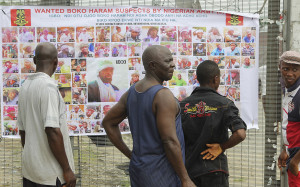
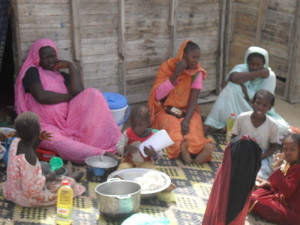
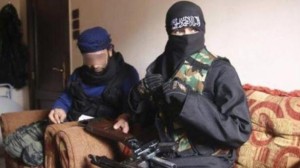


 Posted in
Posted in  Tags:
Tags: 
















